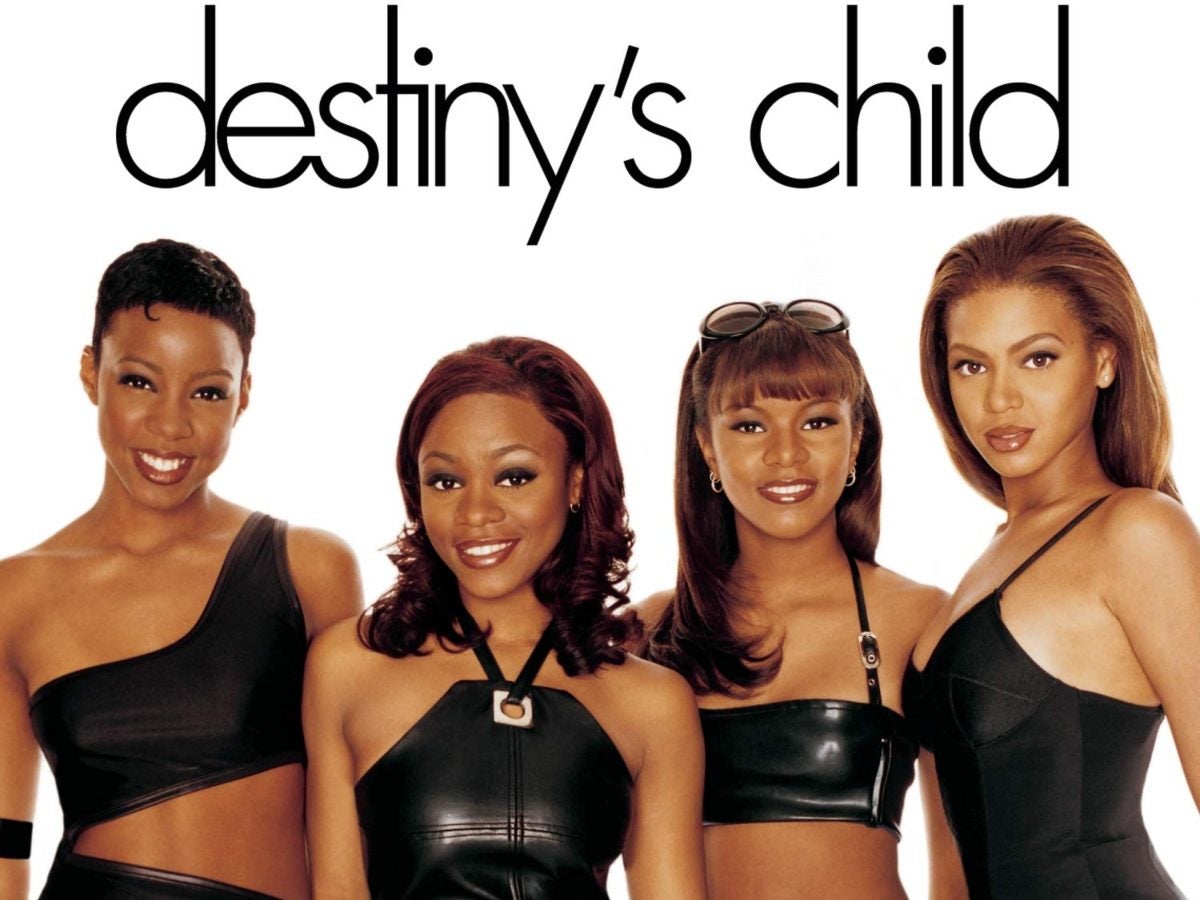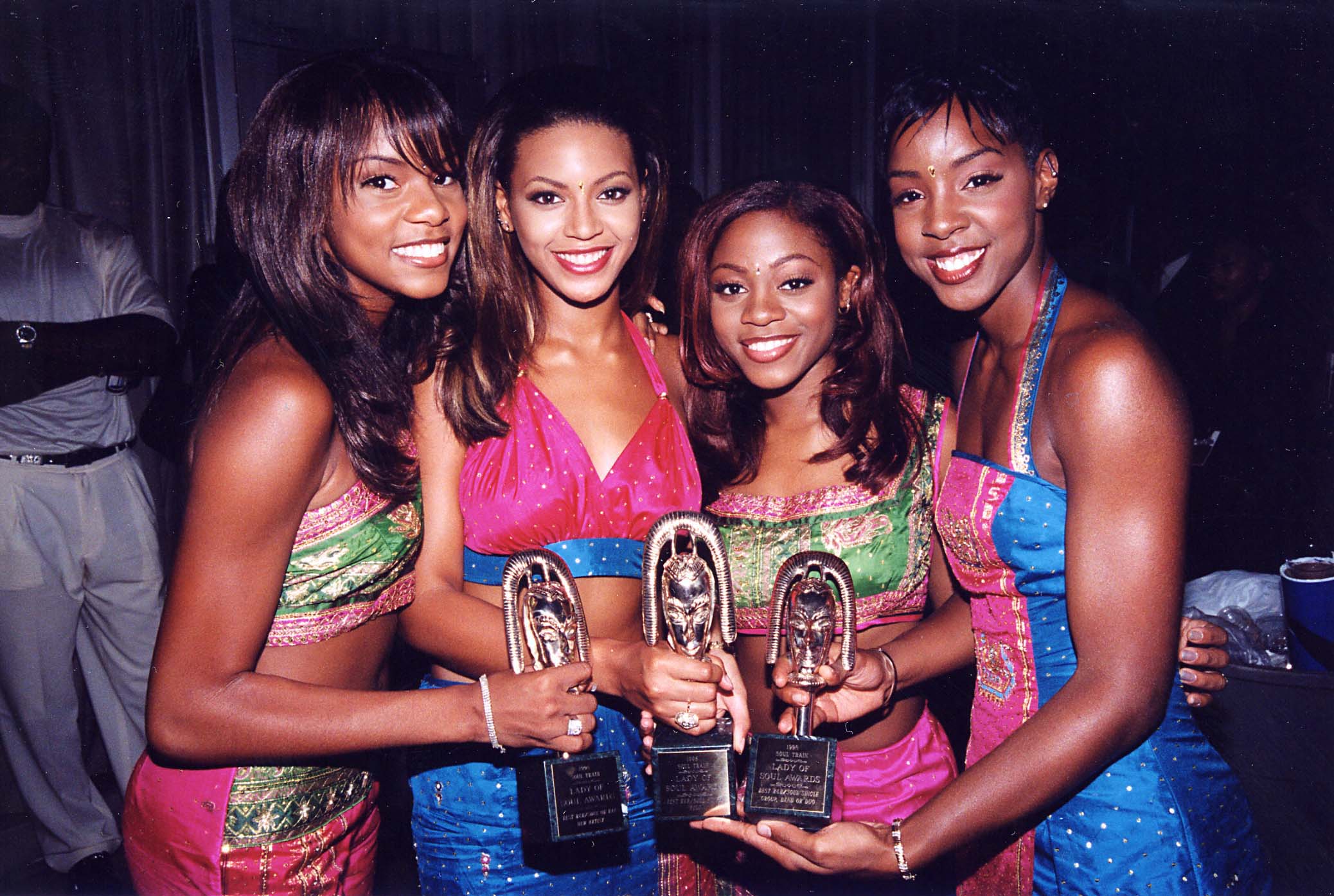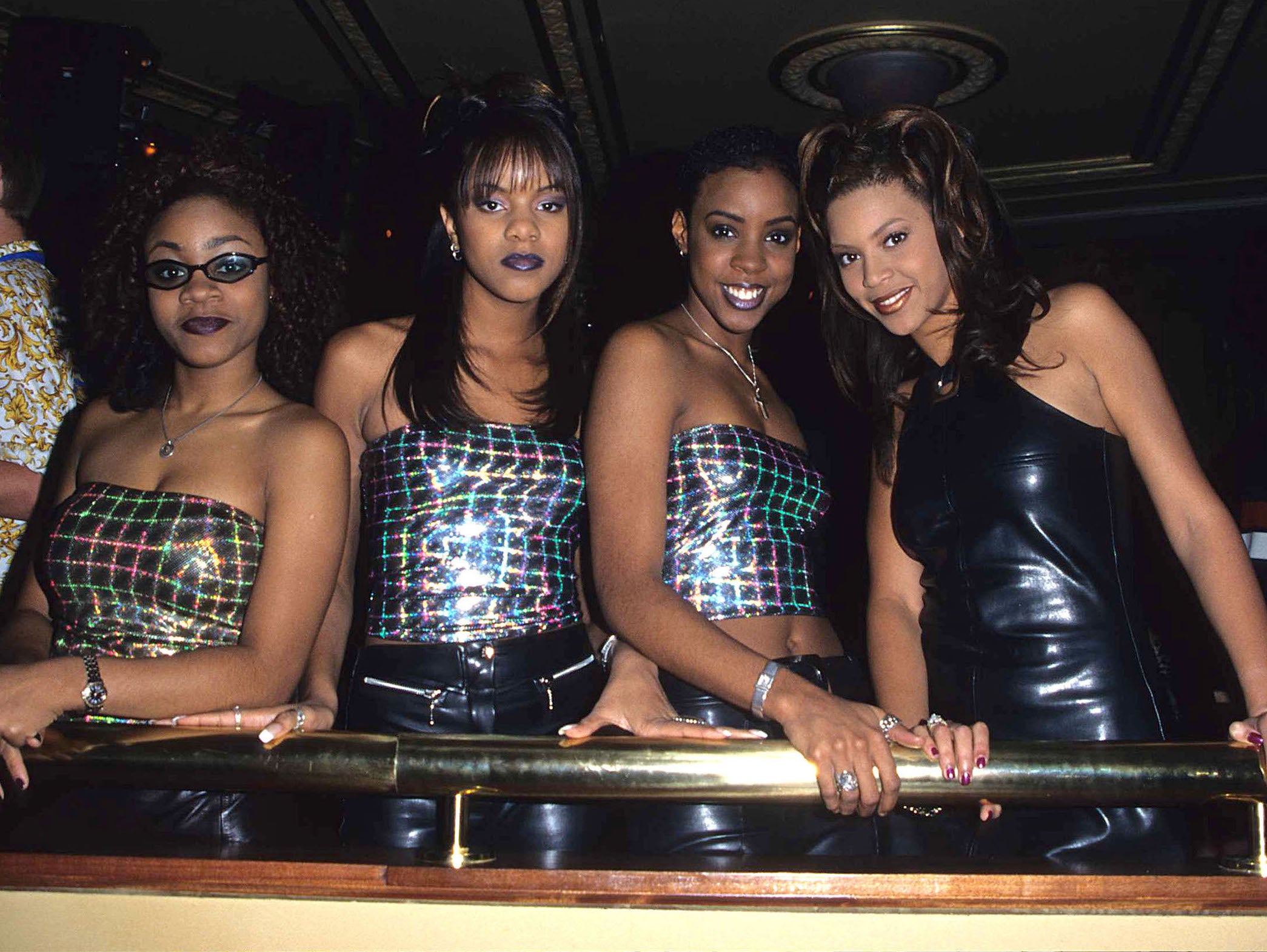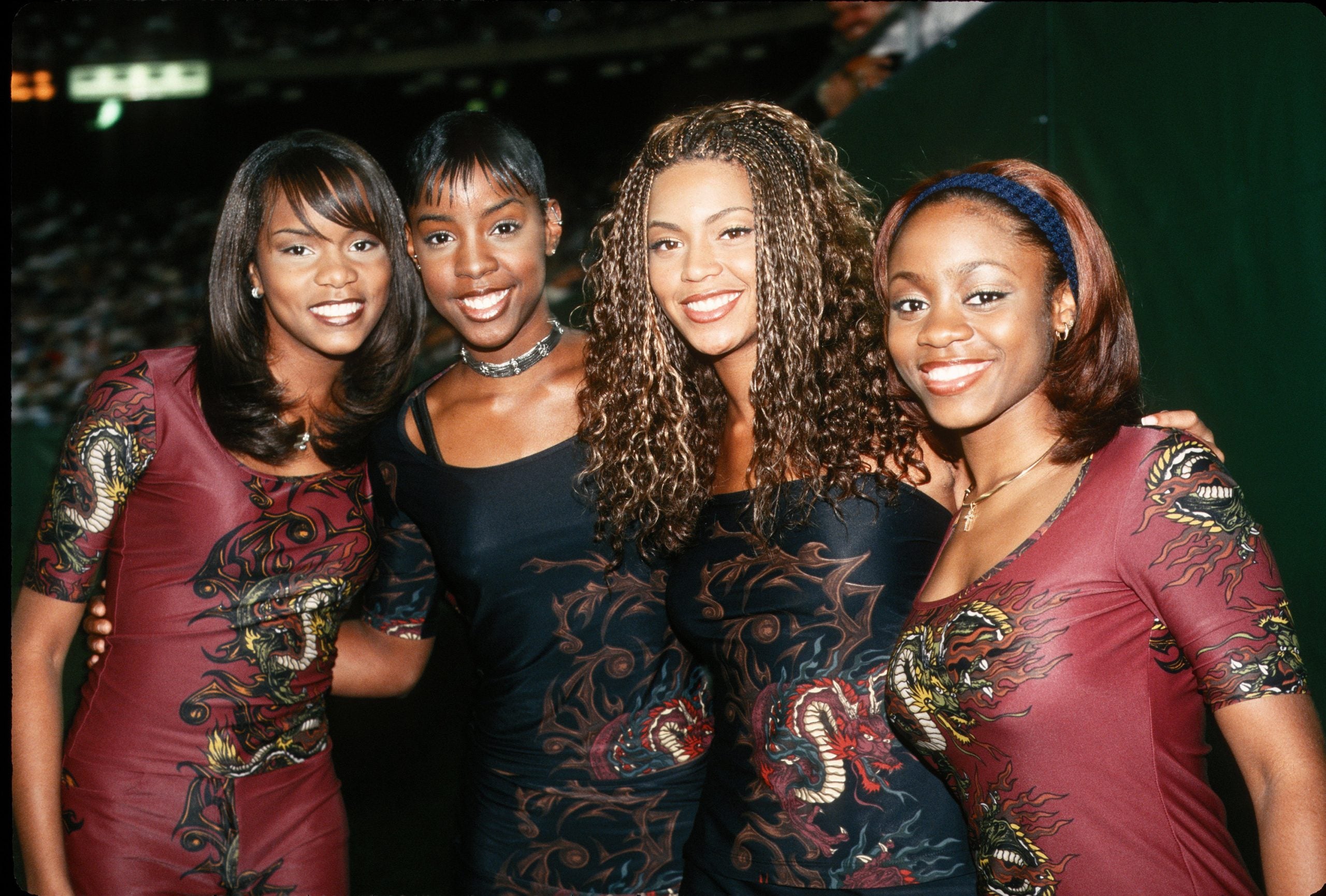
The year 1998 has long been noted as a pivotal one in music history due to the release of Hip-Hop defining albums like DMX‘s It’s Dark and Hell is Hot, Lauryn Hill‘s The Miseducation of Lauryn Hill, and Outkast‘s Aquemini. But when Beyoncé Knowles, LaTavia Roberson, Kelly Rowland and LeToya Luckett hit the scene on February 17 as the now-iconic R&B outfit Destiny’s Child, a cultural reset was pushed into motion.
At just 15 and 16 years old, the foursome was already poised, professional, and prepared to effortlessly command a stage. Their sultry vocals belied their young years, and their perfectly-pitched four-part harmonies paired with hard-hitting choreography (and who could forget their matching outfits?) made them an early blueprint for the teen girl groups of the early aughts.
Their debut album, Destiny’s Child, set the tone for a career that would span the course of a decade, surviving lineup mixups, genre changes, and each member’s individual journey into womanhood.

Early reviews of the album were mixed in the mainstream media. AllMusic called the project “indistinguishable from all the other female groups.” Rolling Stone only awarded it three stars. However, their debut effort was lauded by fans, churning out one of their career-defining hits and leaving them sought-after for guest spots on popular sitcoms like The WB’s Smart Guy, and showered with trophies at the 1998 Lady of Soul Awards. While the project was clearly beloved by millions, few would have guessed upon first listen that a cultural phenomenon had just been born.
“It felt like it took everything in us to get to just the point of having a record deal,” says Luckett of the debut project. “I felt like we had gone through so many showcases and meetings with different labels. We’d lived in Atlanta…we’d lived in Oakland. To finally have an album release date? [February 17] was the most important day of our lives.”
Leading up to that day, the four teens had traveled coast to coast to various recording studios, collaborating with multiple R&B heavy hitters to lay the tracks that would alter their lives forever. From Silent Partner Productions in Atlanta to D’Wayne Wiggins’ Grass Roots Productions in Oakland, back to their home in Houston for recording sessions at Digital Services, and ultimately up to NYC.
“We were in Sausalito, California with D’Wayne Wiggins. Being in a different city and having such a different surrounding, we got to look at things differently,” Roberson recalls. “‘Second Nature’ was one of the first songs we did, and ‘Killing Time,’ because that was on the Men in Black soundtrack. And to me, even now being a 41-year-old woman, that is still one of the most sensual songs that I’ve ever heard.”
With songwriting from Wiggins of Tony! Toni! Toné! and Vincent Herbert, words and production from Jermaine Dupri, guest appearances from Wyclef Jean and Master P, and blessings from legends like Lionel Richie and The Isley Brothers, the teens created a timeless R&B album that still spins like new, yet often features lyrics that were a bit on the saucy side for four would-be 10th graders – particularly by 2023 standards.
Consider their second single, “With Me.” Written by Dupri and Manuel Seal as an answer of sorts to Usher’s smash hit “You Make Me Wanna,” featuring elements of TRU’s “Freak Hoes” (Master P later contributed a verse on the track’s remix), the song’s lyrics boldly boasted to another woman, in a nutshell – “whenever you aren’t quite sure where you man is…rest assured, he’s with me.”
“We probably didn’t even have a man,” Luckett says laughing. “We didn’t know what we were talking about, but it sounded good and people were rocking with it.”
Adds Roberson, “I’ve heard a lot of people say that it might have been maybe before our time. It was sensual, but we just suggested sensual things. But at that age, you start to think about certain things, per se. We were young girls that were coming into our own. We were young girls that were starting to experience things.”
As both Roberson and Luckett recall, they didn’t really give a second thought to the implied content of some of the lyrics they were singing. They were simply riding the high of their hard work and dreams come to fruition.
“To finally be able to have the opportunity to create an album with an A-list production crew, like working with Wyclef Jean. What?” Luckett says. “Four girls out of Houston – what are we doing working with Wyclef?”
That work with Jean, a reimagining of their soulful slowed-down track “No, No, No,” proved to be the smash hit that would take them into the stratosphere. As Luckett recalls, she knew as soon as she heard the sample track playing from another studio, that song was the one for them.
“I don’t know if anybody [else] is going to remember it this way. But I remember being in the studio in New York. I had gone into the hallway – probably using the restroom or something like that. I came back and I remember hearing ‘No, No, No’ being played. I just remember hearing the words, ‘No, no, no, no, no,’ and ‘Yes, yes, yes, yes, yes,’ and the beat being crazy to the slow version. I was like, ‘Y’all, it’s this song! Come listen, come listen.’”

Gaining the attention of the other group members and their manager Matthew Knowles, Luckett recalls everyone being intrigued by the bass-heavy, seductive track. Shortly thereafter, they were laying down their legendary vocals.
Their first (and arguably still biggest) hit, “No, No, No” remains the group’s longest-charting Hot 100 hit single to date. Both Part 1 and Part 2 versions of the track were released on October 27, 1997, hitting the airwaves heavily and becoming that track that had everyone across the nation asking “who are these girls?”
The answer came shortly thereafter when the world caught an eyeful of the foursome for the first time. With back-to-back visuals for each version shot that November by then-music video director Darren Grant, fans finally got to see the fresh faces behind the seductive vocals demanding that their love interest stop playing coy and make his intentions clear.
“They were just cute and fun and country and talented,” Grant recalls of first meeting the group at their home in Houston. “We did a prayer circle in the beginning [of the shoot]…everybody got very emotional. It was a big, big moment for them.”
With “Part 2” leading the charge, heavily featured on BET and MTV’s video rotation, the young ladies quickly shot to national recognition and fame. But as Luckett and Roberson recall, the years of hard work they had put in prior to their big break kept them grounded.
“Being so young, it was definitely overwhelming, the level of stardom that came along with it,” Roberson admits. “And it did come really soon. People assumed that we were an overnight success, but what people failed to realize is that it took us over eight years to get a record deal.”
“I think that [humility] was instilled in all of us at a very, very young age,” Luckett adds. “Even to see the other day Bey accept an award, she’s received the most Grammys period. To watch her go up there with all the humility that she had and talk about really taking the moment in and not like, ‘Yeah, I did it’ – there’s a certain thing that happened, I think, with all of us that we’ve all remained very humble and grateful because we knew how much work it took to get here. It was never an overnight success. It was for real, from grassroots, ground up, below the ground sometimes to get to where we are.”
After their debut, Grant went on to craft visuals for several of their most iconic singles, including “Bills, Bills, Bills” and “Survivor” among others. Still, he says, he never could have anticipated the level of success and influence the group would reach, both together and separately.
“You’re really just optimistic and you’re supportive and you want the people that you work with to win. I’m not sitting up here saying that Beyoncé’s going to be a billionaire when I think about her future when she was 16. I just knew that the group as a whole was really, really talented and fun and passionate. I always believe if you do good work, the rest will come.”

That good work left an impact that can still be observed today, from the sounds of R&B soloists that rule the streams to the vocal delivery of the K-Pop groups that dominate the TikTok numbers of the current day.
“Their talent has risen to the heights of the biggest girl group ever,” Grant observes.
“Doing it with my sisters and my friends that I grew up with, I would never trade it for anything in the world,” Roberson says. “I am so gratefully humbled to be a part of the legacy for the time that I was a part of Destiny’s Child, even the legacy that still continued with DC3. I just think that it’s timeless. You can’t put a stamp on that.”
“Being four girls, four babies, now that you think of it, out of Houston – not a LA or New York, the popular music cities at the time – we just wanted to make a name for our city,” Luckett says. “We wanted to make a name for Texas, and we wanted to put our different style on it, our Southern twang on it, and show the world how four girls from Texas do it a little different. And we did.”